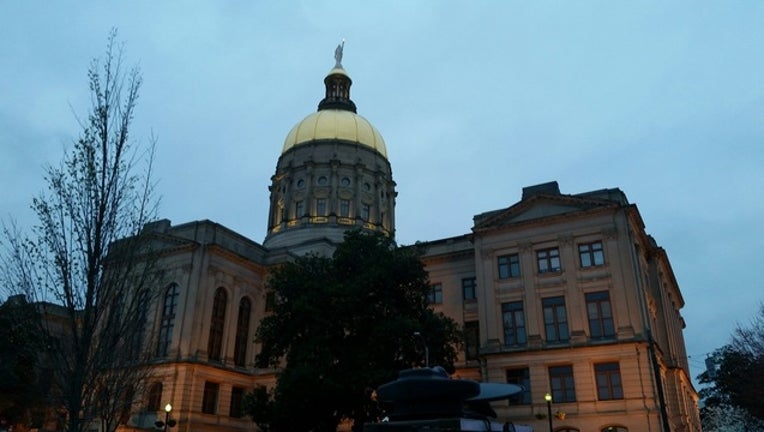Campus guns, income tax proposals await action in final days

ATLANTA (AP) - Legislation affecting Georgia's college campuses, taxes and fledgling medical marijuana program awaits action as lawmakers enter the session's final two days.
The General Assembly convenes for 40 legislative days each year, and bills tend to pile up toward the end.
Lawmakers already passed a state budget, the only measure members are constitutionally required to approve each year. But lawmakers have dozens of other priorities that they're hoping to move to Gov. Nathan Deal's desk before adjourning for the year on Thursday.
Here's a look at some of the items expected to dominate the session's final days:
GUNS ON CAMPUS
A bill lifting Georgia's ban on guns on public college campuses awaits a vote in the state Senate despite Gov. Nathan Deal's veto of a similar proposal last spring.
The measure would allow anyone age 21 and up to carry a concealed handgun on campus with a state-issued permit. The bill exempts student housing, preschools and sports facilities.
A Senate committee also added an exemption for buildings where high school-age students attend classes at some technical colleges. But Senate leaders haven't scheduled it for a vote yet.
The bill easily passed the Republican-controlled House earlier this month. If the Senate votes before Thursday's adjournment, the House would have to approve the revised bill to send it to the governor.
Deal last year said he was concerned about permitting guns in child care facilities, administrative offices and in buildings that hold disciplinary hearings. When lawmakers made no changes, the Republican governor issued a forceful veto that referred to campuses.
Deal hasn't specifically said whether he could sign this year's bill. Deal's office has said that he's continuing to talk with supporters.
TAXES
The rush to pass bills before the end of the 40th day can lead to dramatic last-minute changes to legislation -accidental or intentional. Legislation dealing with taxes is the most frequent vehicle for those alterations
A Senate committee approved a bill that will eliminate sales taxes on taxi and limousine rides. The proposal was initially designed to increase tax collection from ride-hailing services Uber and Lyft, but senators instead opted to eliminate all taxes on transportation services.
That same committee rejected a proposal from the House to move Georgia to a flat income tax and instead boosted certain tax refunds while cutting the rate for the top tax bracket.
The House has hitched two unrelated topics to a bill that initially dealt with sales taxes in DeKalb County.
The new version also would legalize daily fantasy sports, including the well-known DraftKings or FanDuel sites, and give a tax break to people paying for repairs on large boats.
'SANCTUARY' CAMPUS
The Senate hasn't voted yet on a bill yanking state funding for scholarships and research from private colleges that don't cooperate with federal immigration authorities.
A number of colleges and universities across the country have embraced the "sanctuary campus" label since President Donald Trump's election. Each school using the phrase defines it somewhat differently, but it's essentially a promise that the school won't provide information about students to federal authorities investigating immigration cases.
No school in Georgia has announced plans to adopt a similar policy. The bill's sponsor, Republican Rep. Earl Ehrhart of Powder Springs, said changing state law would keep it that way.
The bill passed the House on party lines. Senate approval would send it to the governor's desk.
MEDICAL MARIJUANA
A compromise proposal expanding a state program that lets some patients use oil derived from marijuana also awaits action.
House and Senate lawmakers announced the agreement in mid-March. But the legislation still requires a vote in the House and a final vote in the Senate.
Under the new proposal, six new diagnoses will be added to the list of qualifying conditions for medical cannabis oil including autism, AIDS, Tourette's syndrome, and Alzheimer's disease.
Additionally, anyone in a hospice program, regardless of diagnosis, will be allowed access to marijuana oil that's low on THC, the chemical responsible for the marijuana high.

